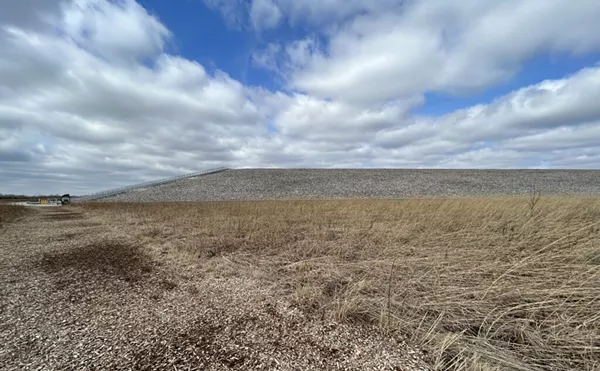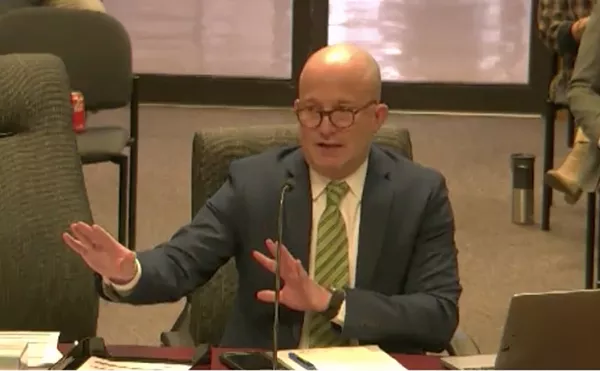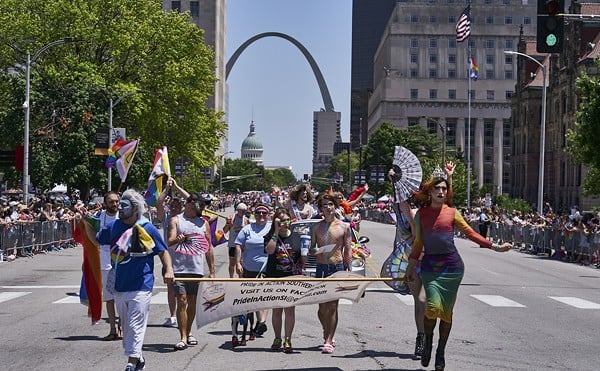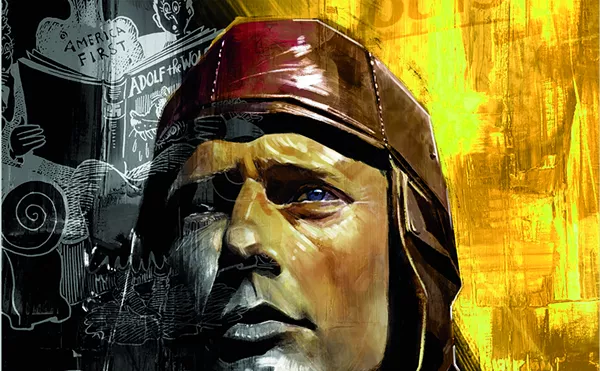Former St. Louis Circuit Attorney Jennifer Joyce tells Riverfront Times that she considers the Jason Stockley case "an excellent example of why continued reform is needed in the way [officer-involved shooting] cases are investigated."
The comments were the first Joyce has made publicly about the case since her retirement — and come three weeks after Stockley's acquittal on first-degree murder charges has triggered protest across the metro area.
In May 2016, Joyce directed her office to charge the ex-St. Louis cop with first-degree murder over the 2011 fatal shooting of Anthony Lamar Smith. As detailed in this week's RFT cover story, nearly every piece of evidence used to build the case against Stockley — including forensic and video evidence — were available to investigators in 2012. Except, Joyce says, she personally was not shown the evidence until after March 2016.Charging Stockley was among the last acts Joyce made as Circuit Attorney, as she decided not to run for a fifth term and retired from public life after leaving office in January. The case's prosecution fell to her successor, Kim Gardner.
Citing Missouri law that limits a prosecutor's ability to discuss a closed case, Joyce declined to discuss the specifics of the evidence that led her to file charges against Stockley. Yet she was willing to answer the question of what led her to finally take action in 2016, four years after Smith's death.
In an email Monday, Joyce blamed the delay on the police investigation.
"I’ve become convinced," she wrote, "due to the Stockley case and others, that the SLMPD cannot investigate itself effectively."
Joyce's impression echos that of her successor. During Tuesday's Board of Aldermen’s public safety committee meeting, Gardner asked the city for $1.3 million to hire a new team of prosecutors to independently investigate police shootings.
Read Joyce's full responses to RFT's questions below:
RFT: What obstacles prevented the evidence collected in 2012 from reaching the CA's office until 2016?
I believe the Stockley case is an excellent example of why continued reform is needed in the way [officer-involved shooting] cases are investigated. The initial investigation in this case was, from my perspective, very disjointed. The Feds and multiple teams at the [St. Louis Metropolitan Police Department] were investigating this matter. Although SLMPD conferred with us about this investigation from time to time, we did not receive a formal, organized and comprehensive warrant application until six weeks before the case was charged. It was very frustrating that so much time passed between the incident and the application of charges by police.
The scattered approach of OIS investigations was somewhat improved when Chief [Sam] Dotson developed the Force Investigation Unit, allowing the [Circuit Attorney's Office] to review police shootings where a citizen was injured or killed. It is my understanding that the FIU was proposed earlier but heavy opposition from the [St. Louis Police Officers' Association] stalled progress for years. It is my opinion that much more needs to be done to continue to reform this process. I’ve become convinced, due to the Stockley case and others, that the SLMPD cannot investigate itself effectively. It is critical that truly independent investigators handle these important cases. The current SLMPD investigators appear to have a very close relationship with the SLPOA and SLPOA lawyers. I believe this is a clear conflict of interest that effects the quality of their work in an unacceptable fashion.
RFT: Were you disappointed by the verdict?
The case is now closed under Missouri law, so discussion of the evidence and specifics details of the case has some limits.
What I can tell you, however, is that I charged his case because I believed we had the evidence needed to convict Jason Stockley beyond a reasonable doubt in a court of law.
There were many checks and balances along the way that supported the prosecution of this matter. The grand jury reviewed the evidence and they indicted the case. The defense team requested the case be dismissed multiple times, and that request was denied by Judge [Timothy] Wilson. The judge could have dismissed this case at any point in the process if he believed there was insufficient evidence to proceed. A new elected prosecutor was sworn into office during the time this case was being prosecuted, and she too, could have dismissed the case at any time if she believed there was insufficient evidence to proceed. If fact, the Rules of Ethics require that if the new prosecutor believed there was insufficient evidence she could not proceed on the case.
Post Ferguson, my office reviewed many officer-involved shooting cases. In each of those cases, we did not have sufficient evidence to proceed with a prosecution. We were open and transparent with our decision making in those cases. Protesters were unhappy with those decisions as well. Public opinion never played a role in any of my decisions to charge or not charge someone for violating Missouri law.
Follow Danny Wicentowski on Twitter at @D_Towski. E-mail the author at [email protected]






